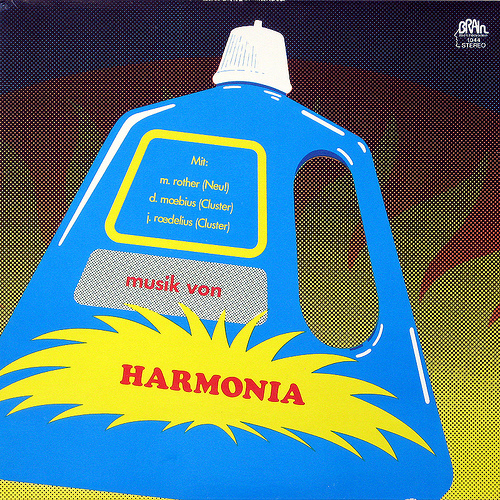5.

Harmonia – Musik von Harmonia
This one my hairdresser told me about. He’d been in Rough Trade and picked it up on a whim. This was a long time ago [laughs]. Discovering it changed everything for me. It’s trance, isn’t it, Harmonia? It’s completely trance. Like everyone does, growing up you pick up a story [from] where you’re born, and as a teenager you don’t by default think about where what you discover came from, I don’t think. But then realising that the best bits of trance had all come from this music, that it had really shaped everything, and that you could go back and not take those wrong turns and stay purer without attempting to make a pastiche… It’s meaningless to try and make music from the 70s because I’m not in the 70s. But it is possible to go and retrace these steps, form a new path and make some new music that genuinely belongs in this decade, but is still following those ideas and paths that were laid out. Musik Von Harmonia is my favourite of all those records, I think.
It was quite intense for a while – after finding Harmonia and just getting so excited about it, I just went mad. I read [Julian Cope’s] Krautrocksampler and then worked my way through everything he mentioned in it, working out what I liked and what I didn’t. Up until that point I think I’d been a bit put off by it, because Can in a way is my least favourite of the krautrock stuff, and that’s the thing people would always reference and play and talk about. That didn’t seem as magic to me. It’s ok, I quite like it, it’s not the worst thing ever, but Harmonia… Finding my own subset of that canon, that spoke to me. It was several years, but most of my spare musical effort was spent on that for a while.
[This album] is very repetitive and polyrhythmic and a bit incomprehensible, and some of the tracks fold around on themselves in strange rhythmic ways – I guess that’s not really present in the motorik, straight Can stuff so much. This seemed much more different, much more separate from prog rock. That’s not just because it’s electronic – it’s got lots of sounds that sound baroque, folk turns in the background, and noodly guitars happening. I think those baroque [aspects], the little pipes or oboes going on in it – that was the thing that [made me most think] ‘Wow, it’s so beautiful, it just connects everything up’. That was what started me thinking about folk instruments and folk scales as well, it’s all in that record. I owe them a debt. [laughs]


